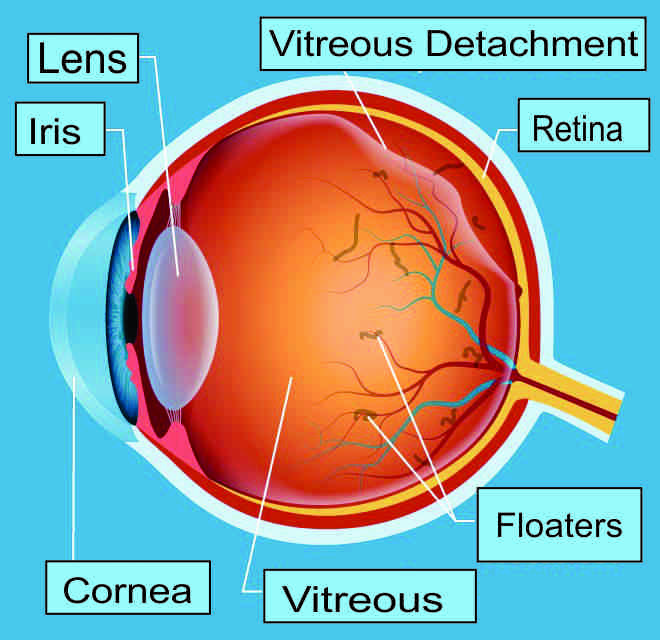I routinely hear from patients that I see a spot or a floater in my vision. Floaters are a semi-transparent or cloudy particle within the vitreous, which is a clear, jelly-like fluid that fills the inside of our eyes. The floaters can appear as threadlike strands, or cobwebs. They move or “drift” with your eye movements as they are located inside the eye.
When we are born and in our youth, the vitreous has a gel-like substance and is transparent. As we age, the gel inside of our eyes start to liquefy, like leaving Jello out in the sun. This results in floaters in our eyes that are usually easy to see on a white or blue background. The floaters cast a shadow onto your eye which may cause them to appear dark. Noticing a few floaters is of no concern, it is when you see many floaters that you should be evaluated immediately, especially if they are accompanied by flashes of light.
The sudden on set of these symptoms could signify that the gel is separating from the retina as it liquifies called posterior vitreous degeneration. This is usually a benign condition. However, it can also indicate that the vitreous is tugging on the retina and cause it to tear. Fluid can accumulate beneath a retinal hole or tear and cause a retinal detachment. This is a medical emergency and you should be seen immediately by an eye care professional. It this occurs during after hours, a prompt visit to the emergency room is necessary.

Studies show that people with sudden onset of eye floaters and/or flashes of light, 39.7 percent had posterior vitreous degeneration and 8.9 percent had a torn retina. Another study showed that 50 percent of people with a torn retina will develop a retinal detachment which can lead to significant vision loss.
Treatment
Most floaters do not cause harm to your vision and eventually settle down due to gravity or your brain learns to ignore them. Other times, they can persist and be annoying if they are large or in your field of view. Procedures like vitrectomy which involves removing the entire vitreous from the eye and new procedures like vitreolysis which uses a laser to “zap” or vaporize the floater into tiny pieces can be surgical options for large floaters.
Contact our office immediately if you are experiencing signs and symptoms of recent onset of flashes of light and floating spots.



